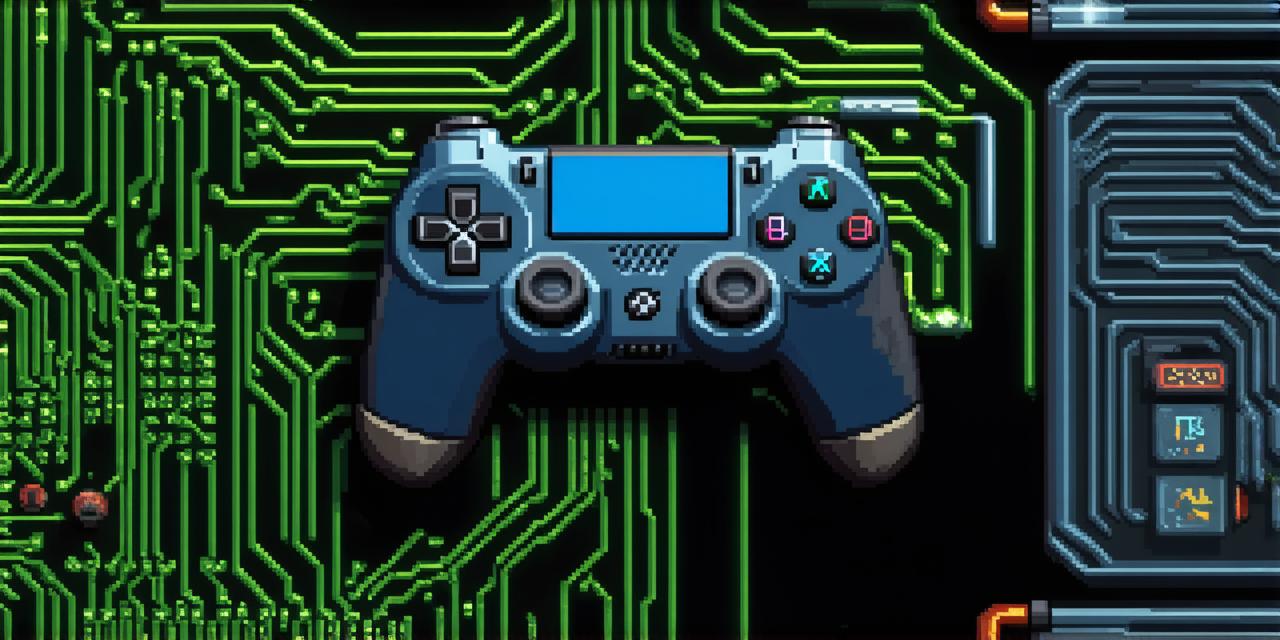The Benefits of a Career in Game Development
First, let’s take a look at some of the key benefits of a career in game development.
- High Demand:
- Creative Freedom:
- Competitive Salary:
- Flexibility:
- Opportunities for Advancement:
With the rise of mobile gaming, esports, and virtual reality, the demand for skilled game developers is higher than ever. This means that there are plenty of job opportunities available, both in-house and freelance.
Game development allows you to exercise your creativity and bring your ideas to life. Whether you’re designing a new character, creating a unique world, or programming complex game mechanics, the possibilities are endless.
The average salary for a game developer is around $80,000 per year, with top-tier developers earning even more.
Game development can be a highly flexible career, allowing you to work from home or remotely, which means that you have the freedom to balance your work and personal life.
As a game developer, you have the opportunity to progress in your career and take on new challenges. This could mean moving into management, specializing in a particular area of game development, or even starting your own game studio.
Skills and Education Required for Game Development
Now that we’ve covered some of the benefits let’s take a look at the skills and education required to become a successful game developer.
- Programming Skills:
- Artistic Skills:
- Game Design Skills:
- Collaboration Skills:
- Problem-Solving Skills:
Game development requires strong programming skills in languages like C++, Java, Python, and JavaScript. You should also have experience with game engines like Unity or Unreal Engine.
In addition to technical skills, you’ll need strong artistic skills, including 3D modeling, texturing, rigging, and animation.
You’ll also need a solid understanding of game design principles, including level design, user interface design, and game mechanics.
Game development is a collaborative process that requires strong communication and teamwork skills.

The game development industry is constantly evolving, so you’ll need to be able to think creatively and solve problems quickly.
Education Options for Game Development Majors
There are several education options available for those interested in pursuing a career in game development. These include:
- Bachelor’s Degree in Game Design or Computer Science with a specialization in game development.
- Master’s Degree in Game Design or Computer Science with a focus on game development.
- Online courses and bootcamps that teach programming, game design, and game engines.
- Internships and entry-level positions at game development studios.
Real-World Examples of Successful Game Developers
Now that we’ve covered the skills and education required for game development let’s take a look at some real-world examples of successful game developers.
- Shigeru Miyamoto: Known as the “Father of Video Games,” Miyamoto created some of the most iconic games of all time, including Super Mario Bros., The Legend of Zelda, and Donkey Kong.
- John Carmack: As the co-founder of id Software, Carmack is responsible for creating the Doom and Quake game franchises.
- Clifford Stern: Stern is the founder of Midway Games, which created some of the most popular arcade games of all time, including Space Invaders, Pac-Man, and Donkey Kong.
- Markus Persson: Also known as “Jeb,” Persson is the creator of Minecraft, one of the most successful video games of all time.
- Tim Sweeney: As the co-founder of Epic Games, Sweeney is responsible for creating the Unreal Engine, which has been used to create some of the most stunning and immersive games of all time.
Tips for Getting Started in Game Development
Now that we’ve covered some of the key concepts let’s take a look at some tips for getting started in game development.
- Start with the basics: Before diving into advanced programming and game design, start by learning the basics of programming languages like C++ and Java.
- Experiment with game engines: Game engines like Unity and Unreal Engine provide a great way to get started in game development without having to build everything from scratch.
- Collaborate with others: Game development is a collaborative process that requires strong communication and teamwork skills. Look for opportunities to work with other game developers, artists, and designers.
- Participate in game jams: Game jams are short-term game development competitions that provide a great way to practice your skills and showcase your work to potential employers.
- Stay up to date: The game development industry is constantly evolving, so it’s important to stay up to date with the latest trends and technologies. This could mean attending conferences, reading industry publications, or even taking online courses.
Conclusion
Pursuing a college major in game development can be an exciting and rewarding career path. With its high demand, competitive salary, creative freedom, and opportunities for advancement, game development is an attractive option for anyone with a passion for creating immersive and interactive games.




